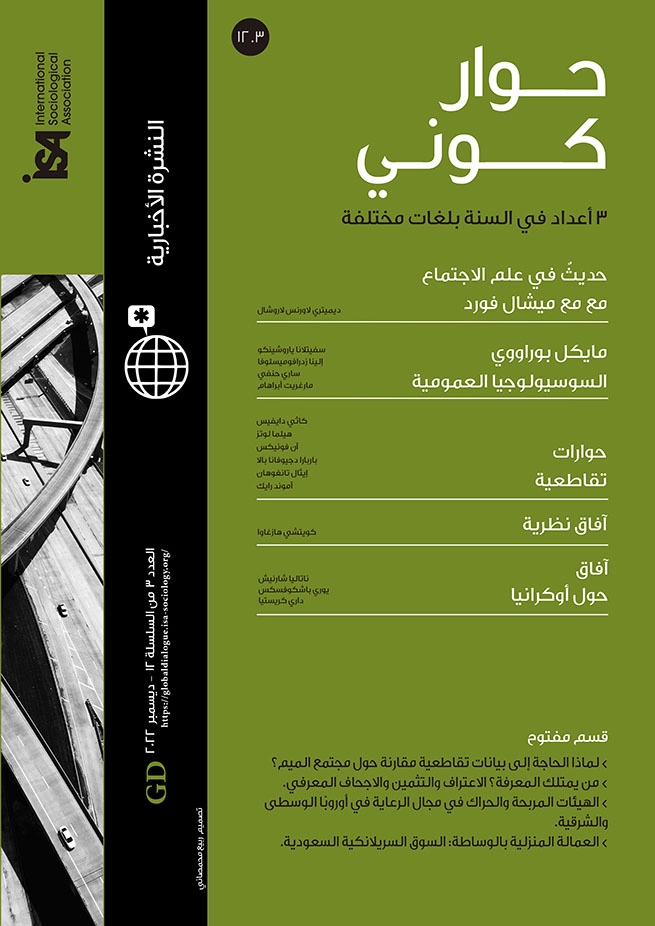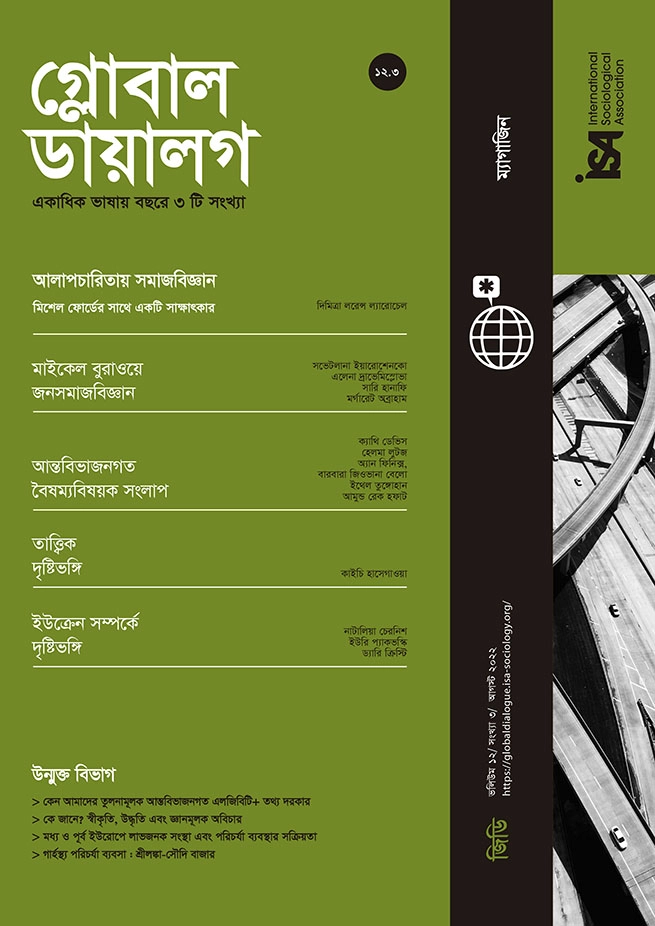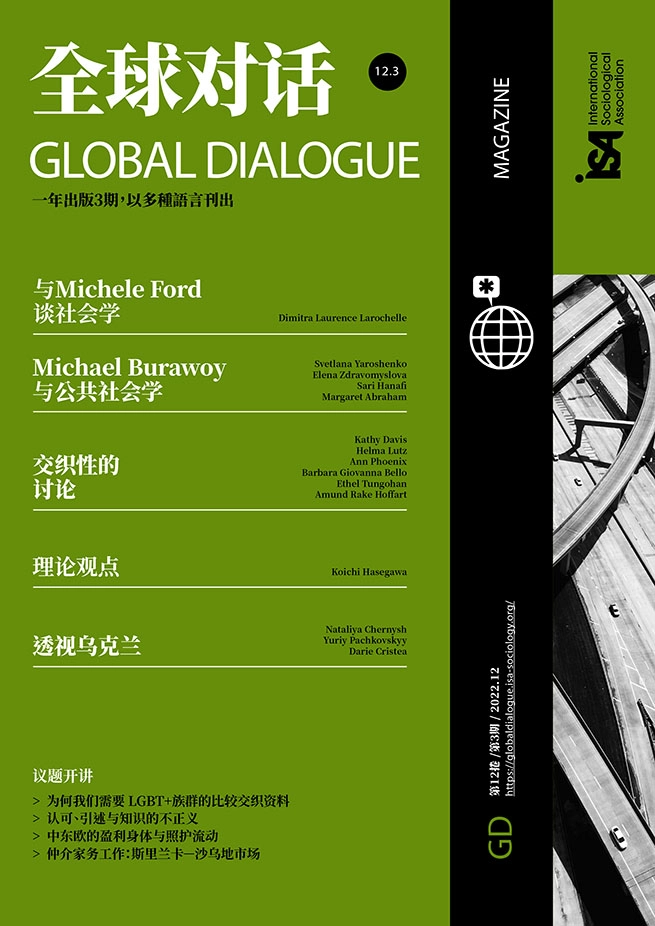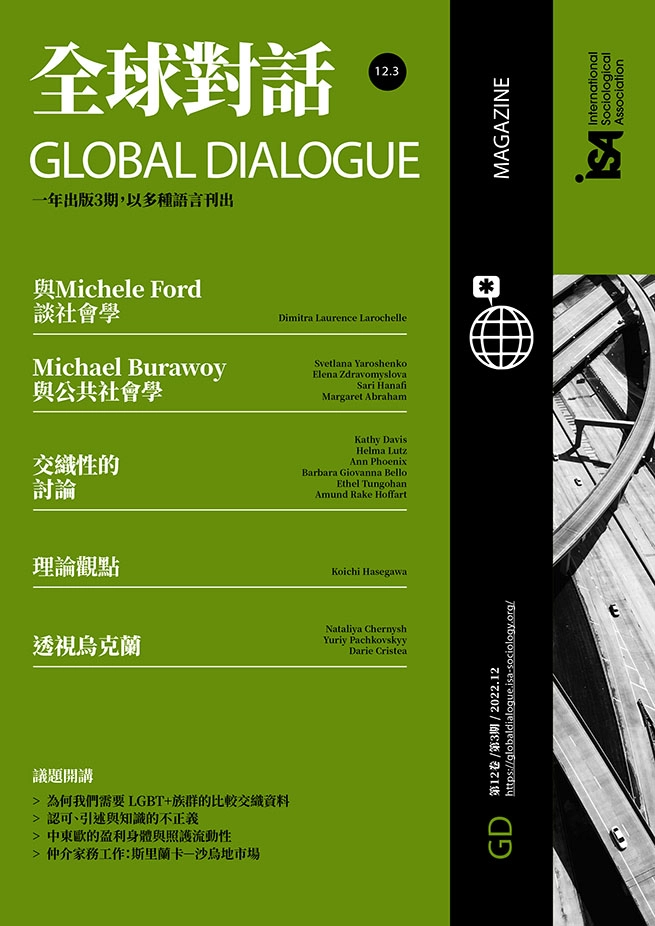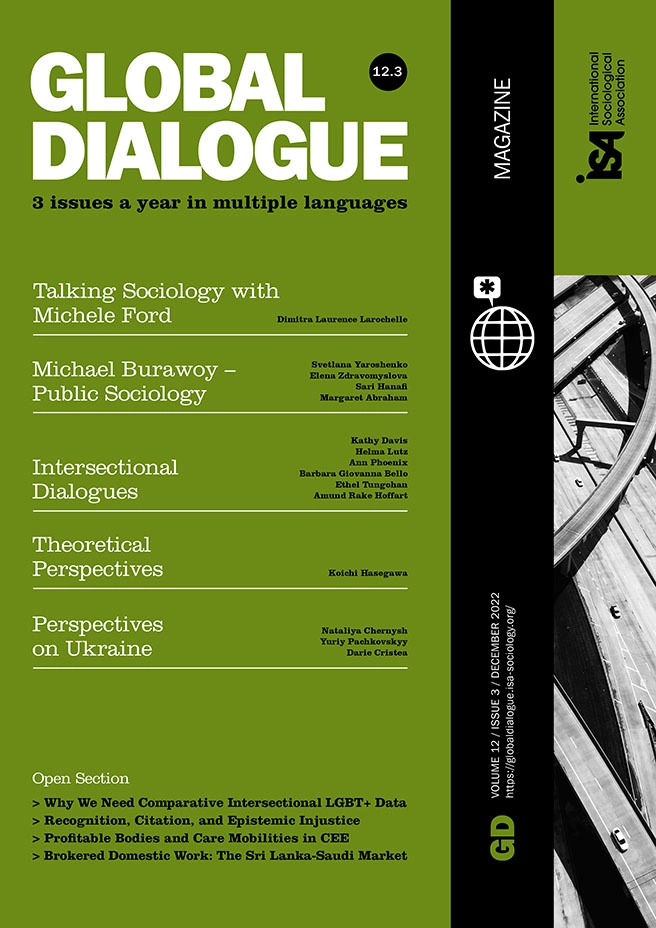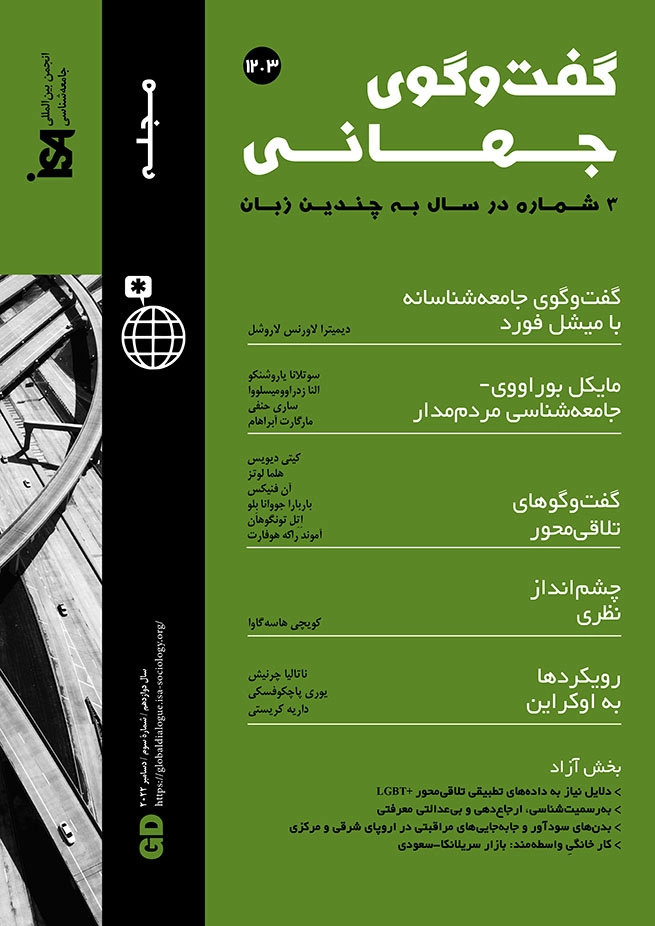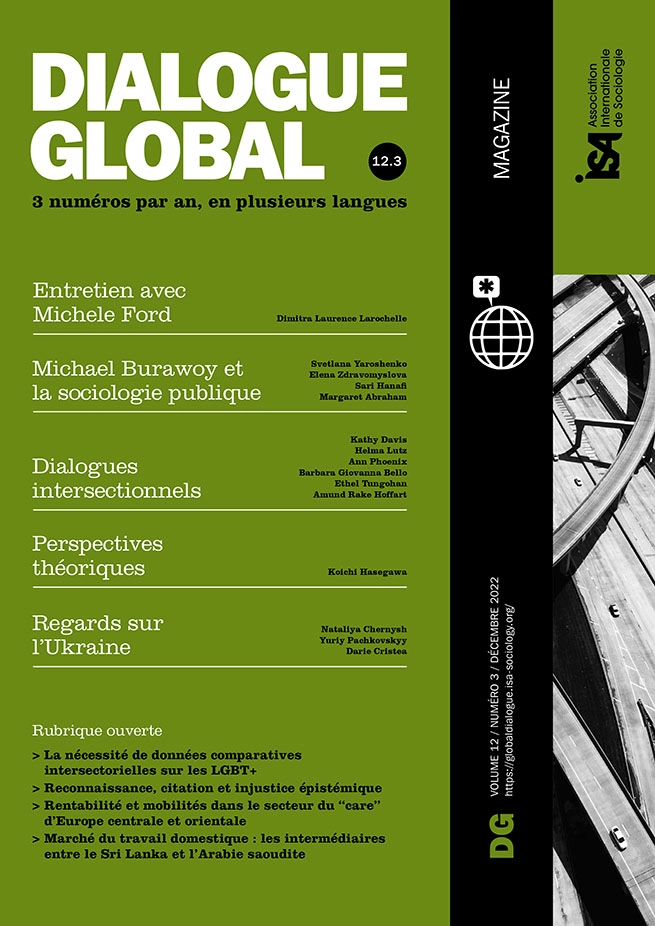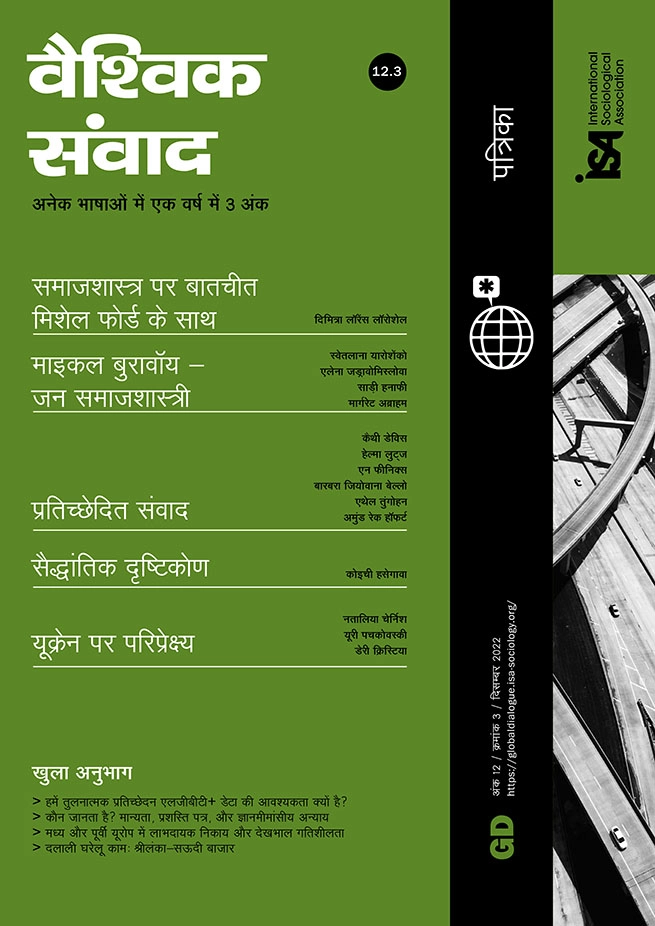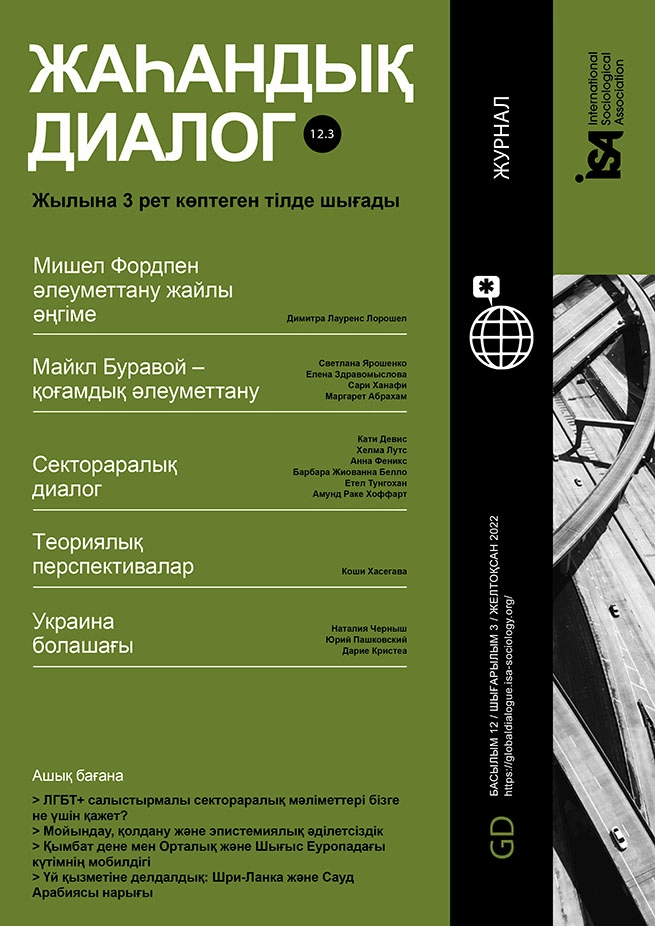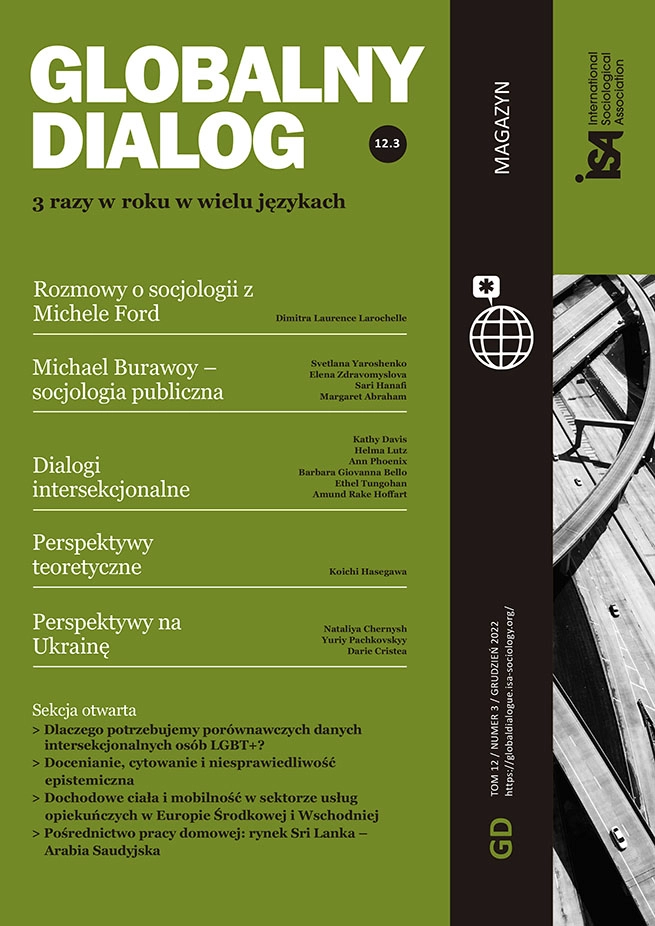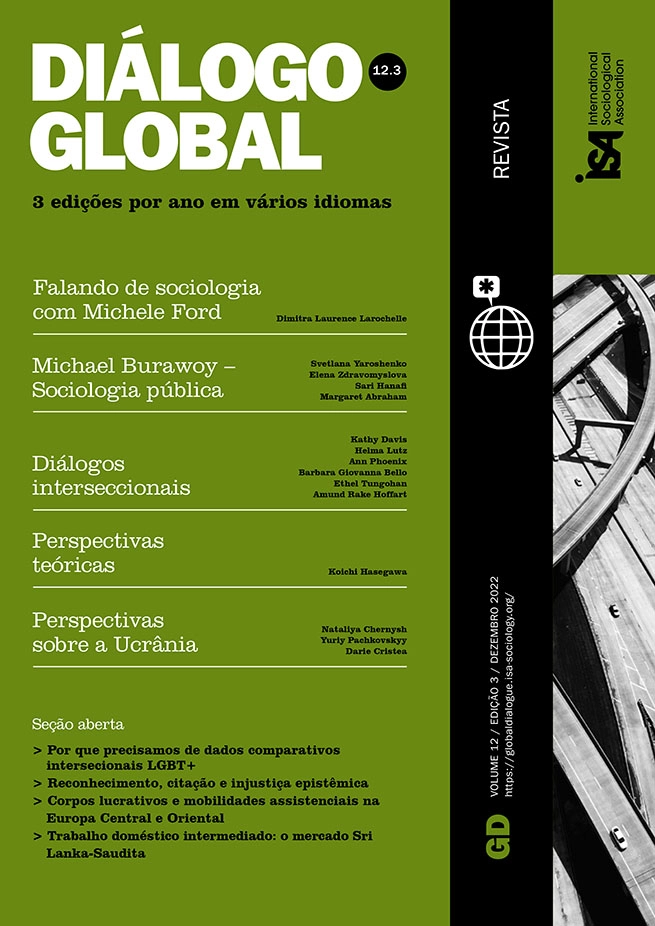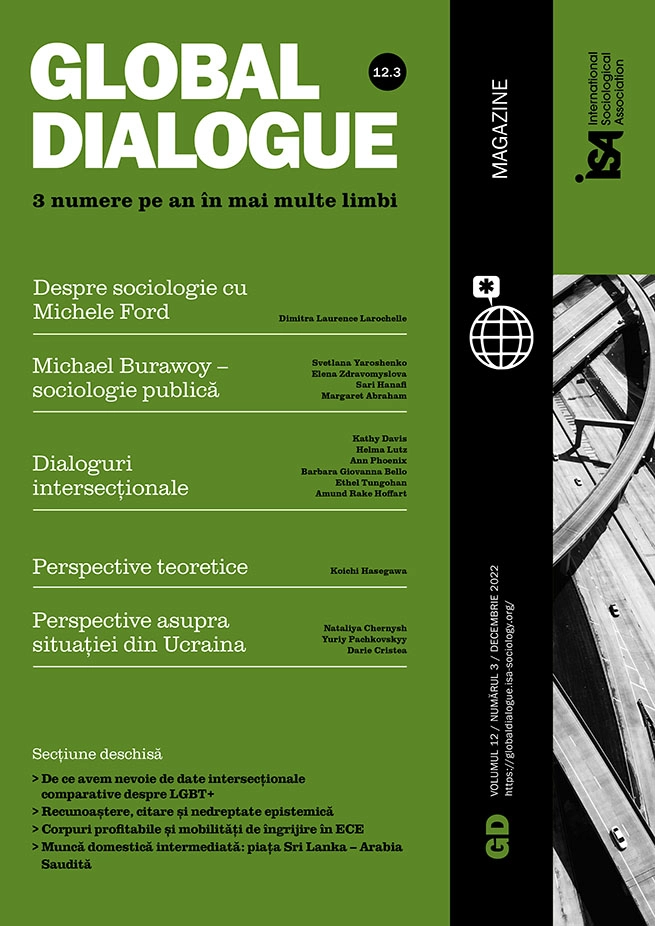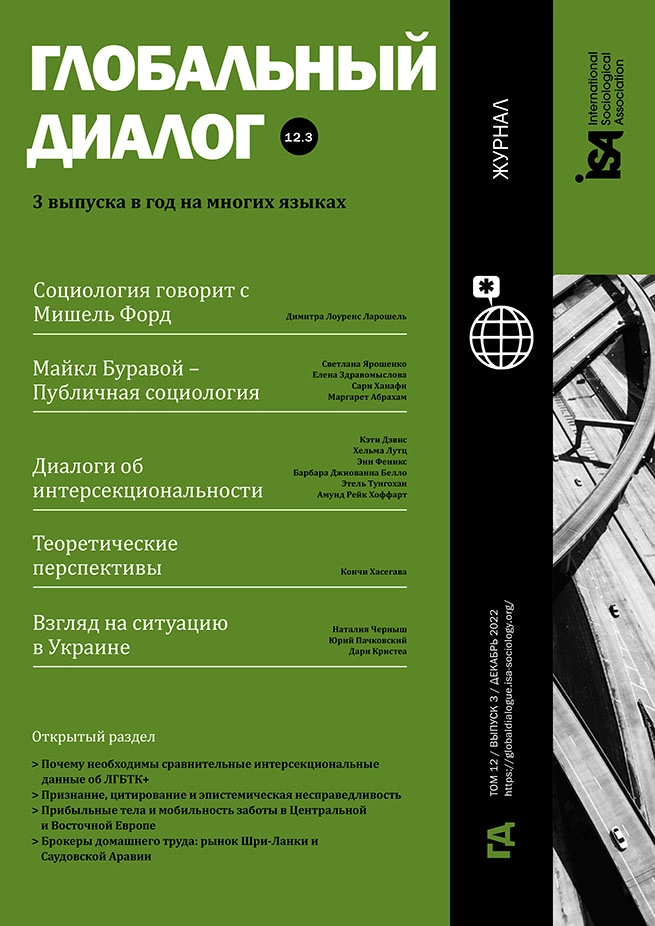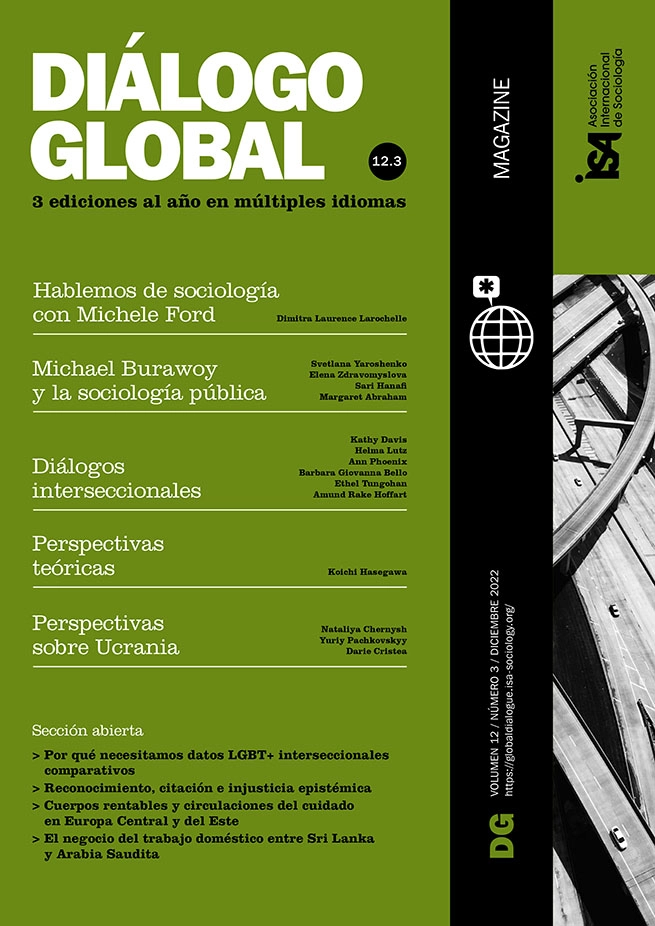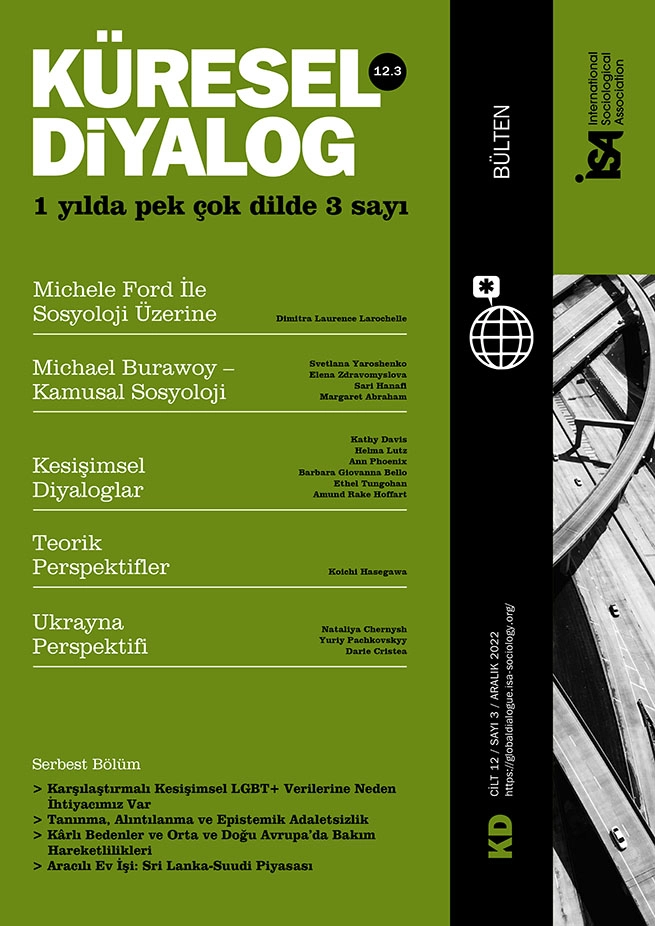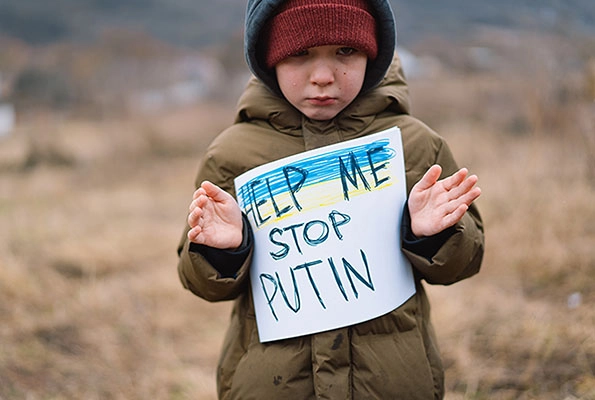Read more about Perspectives on Ukraine
How the Russian-Ukrainian War Affects Sociology
by Nataliya Chernysh
The War in Ukraine Changes What We Thought We Knew
by Darie Cristea
October 15, 2022
The ongoing Russian–Ukrainian war is a challenge to the entire civilized world. In the context of Ukraine today we can observe the collapse of all the principles of the international coexistence of states, and how human destinies are dependent on voluntarism and the imperial ambitions of one country, or in fact of one person at the head of the state who seeks to dictate his misanthropic ideology to the whole world. The horrors of war that every citizen of Ukraine is experiencing today also affect almost all spheres of the world community, which faces global challenges to its own security, particularly from Russia’s nuclear threats, as well as the latest migration challenges, global hunger, and energy and environmental crises. These may appear small compared to the tragedy, and in fact the genocide, that all Ukrainian people are going through. According to official statistics, during the first 115 days of the war, Russia killed more children in Ukraine than in Syria in the whole of 2021 or in Bosnia over the period 1992-1995.[1]
Reflecting on the problems of war and its consequences, as a sociologist and psychologist I think about a number of comparisons and analogies that fit in well with the concept of social trauma (P. Sztompka, J.C. Alexander, R. Eyerman, etc.): war as a global challenge; war that permeates human destinies; war as a way to create and construct a new vision and values of human existence; war as worries and life experience; war as a space for human activity and strength of spirit; war as a struggle for personal future and the fate of generations; war as genocide; war as a path to consolidation and solidarity, etc. All this continues. However, what unites all these associations with war is that, for the most part, we need a way of overcoming a traumatic event that affects each person’s life, as well as the whole of society. Every person who experiences war, or is molded in its crucible, has their own individual and unique life story. In their amalgamation, these life stories are “intertwined” or connected with the country where we were born, where we live and work, and whose history we create.
The history of Ukraine is like the flight of a wounded bird, which struggles to rise higher and higher, into the light, out of the darkness and uncertainty. During its progress, Ukraine has endured great historical trauma (for example, it is worth mentioning the events of the early twentieth century, the struggle of Ukrainians for independence from Bolshevik Russia, the Holodomor of the 1930s, the devastating German-Soviet war of 1941-1945, Chernobyl in 1986, and now the Russian-Ukrainian war, which has been going on since 2014 and which led to Russia’s annexation of Crimea and parts of the Donetsk and Luhansk regions) as well as the socio-cultural trauma of the late twentieth and early twenty-first centuries, which stemmed from a long period of social transformation and the breakdown of the old system of values with the fight for democracy during the Orange Revolution of 2004 and the struggle on the barricades for a European perspective during the Revolution of Dignity in 2013-14. The long historical path of struggle and suffering has been engraved in the social memory of the Ukrainian people; deep emotional experiences have led to mental trauma at the level of social groups and individuals. According to the Ministry of Health of Ukraine, some 15 million Ukrainians will need psychological support due to the full-scale war today, and 3-4 million will need medical treatment for mental disorders.[2] At least one in five Ukrainians will suffer negative health consequences as a result of the war, with the number of people who experience mental health issues increasing each day the war continues.
Given the experience of the Ukrainian people, the current war has produced a new perception of reality; at the level of the average Ukrainian there has been a break with all preexisting myths of “Russian-Ukrainian brotherhood” – with any common path through the Great Patriotic War and the reconstruction of the economy in the postwar years. This understanding that we are different has become obvious even to those Ukrainians who did not wish to consider the idea of destroying common Slavic roots. Such an identity can especially be traced through the perception of war, which for us, Ukrainians, is really a war for our freedom, dignity and existence (for them, Russians, this is not a war, but a so-called special operation: heroization of their murdering leaders and hatred of everything Ukrainian). For us, Ukrainians, this war is a deeply traumatic event, but for them it is an occasion for emotional euphoria and the triumph of the symbols Z and V in the mass consciousness. This new life requires of all Ukrainians a great effort, struggle and consolidation, as it does of the whole democratic world and especially all Europeans without exception.
The special tragedy of this war was the anticipation of the unexpected. We were living under conditions of the military situation in the east of the country which had been going on for the previous eight years, and the (mis)understanding that had “hung” over the country, over each of us. February 24, 2022 represented a countdown to a new story for us, when all us adults asked ourselves the fateful question: “Do I want to go back to the USSR?” Or, alternatively: “Do I want to live in a country where there is respect for human rights, freedom and democracy?” The beginning of a new countdown is, in fact, a huge shock (the emotional state associated with a traumatic event), when the fate of the country was decided in the first 5-7 days after the massive Russian invasion along 1000 kilometers of our shared border. I asked students at the Sociology Department of the Ivan Franko National University of Lviv to describe (reconstruct) their perception of the war over the last three months, since it began. The strongest emotional impressions in their lives turned out to be related to the first day(s):
“For me, the morning of the beginning of the war was as if a loved one had died and I was going to the funeral. Everyone was scared. For the first few days, I was afraid to go outside, lying in bed all the time watching the news. On the third day of the war, I left home for the first time and went out with a friend for bread; the queues in the shops were long, and the shelves where essential goods should have been were almost empty. I was uncomfortable and scared.” (Vira, 19 years old)
“The first night after the declaration of war was long for me, every car passing by the house was like a helicopter or a rocket; because of this and the constant stress I could not sleep…” (Dmytro, 21 years old)
“The first night was almost the worst. Due to the incredible stress, insomnia began, I watched the news all the time, I didn’t know what to do, I was in a panic. About three o’clock in the morning, three fighter jets flew over the house. It was such a loud, heavy, and lingering sound that as they flew, it seemed like an eternity. Since then, my panic has doubled. A few days without normal sleep and nutrition, full of fear and panic led to exhaustion. Since I could not study, I realized that this way I would not help anyone, and began to look for where I would be useful.” (Anastasiia, 20 years old)
“I cry every time I think I need to break up with someone or that I might lose someone… I believe it’s not as scary as in a movie, we have to go through it. I love my family and my relatives very much, despite all the troubles and quarrels. I want us all to be healthy and alive and to be together. May all be well. I want to live.” (Kseniia, 18 years old)
“At 7.44 in Lviv, an air raid alarm was heard for the first time. I jumped out of bed and ran out into the hallway to the neighbors. A grimace of a nervous smile froze on my face, and a tremor permeated my body…” (Martha, 18 years old)
It is believed that to overcome an injury takes as long as the person was under the influence of the traumatic event that led to the strong emotional experience. This process of “overcoming” can take months, years, or even decades, depending on the strength of the impact of the event on the person and their resistance to stress. From the standpoint of sociology, in my opinion, today the study of the collective trauma of war as an acute military stress in the context of “witness trauma”, “human suffering”, “searching for a new meaning of life”, “military anxiety syndrome”, “joint overcoming of traumatic events”, etc. is more timely than ever before. The current case of the Ukrainian society depicts a high degree of self-organization. This example could be an inspiration much more broadly for the prevention of collective trauma, whose consequences have a deeper psychotherapeutic significance, namely in its – paradoxically – constructive impact on society as a whole. For Ukraine, overcoming war as a collective trauma means:
Of course, overcoming a traumatic situation presupposes not only the coordinated action of the entire Ukrainian society, but also an understanding of the personal problems of each person affected by the war. In my opinion, the unifying factor that can combine the way out for the individual and the collective from this traumatic situation is the deep faith everyone has in victory.
Lviv, June 25, 2022
[1] (in Ukrainian) https://molodost.in.ua/news/7002/ (June 19, 2022).
[2] (in Ukrainian) https://poglyad.tv/u-moz-vvazhayut-shcho-cherez-viynu-kozhen-p-yatiy-ukrayinec-matime-problemi-z-psihikoyu-article (June 10, 2022).
Yuriy Pachkovskyy, Ivan Franko National University of Lviv, Ukraine <ypachkovskyy@gmail.com>
This issue is not available yet in this language.
Request to be notified when the issue is available in your language.
If you prefer, you can access previous issues available in your language:
